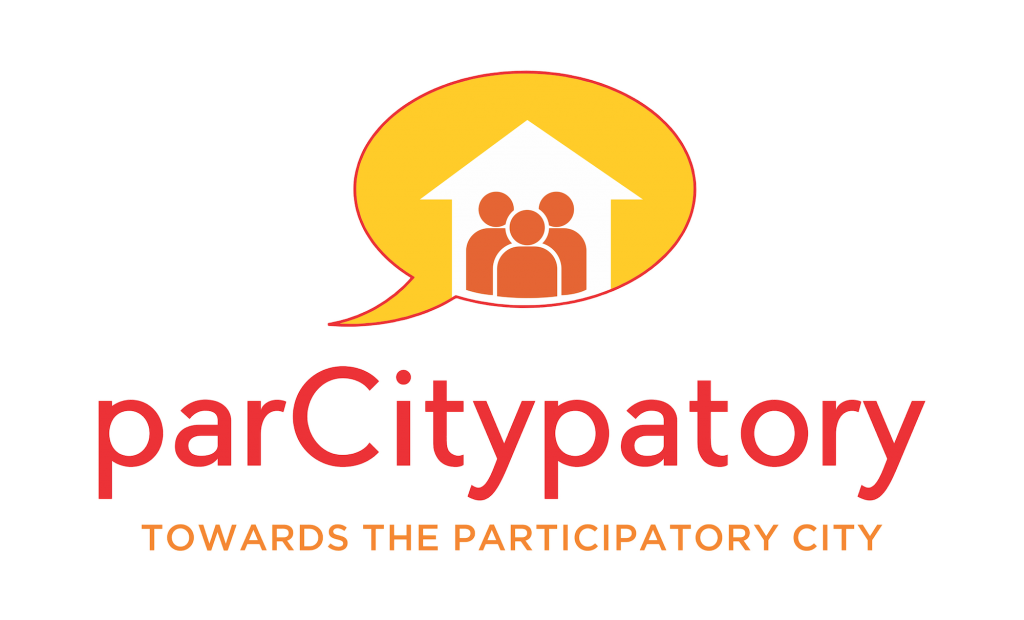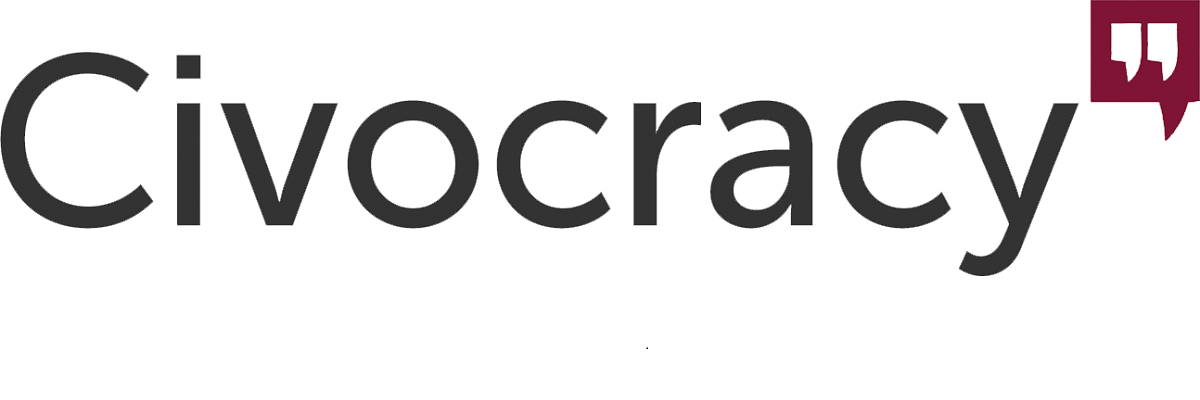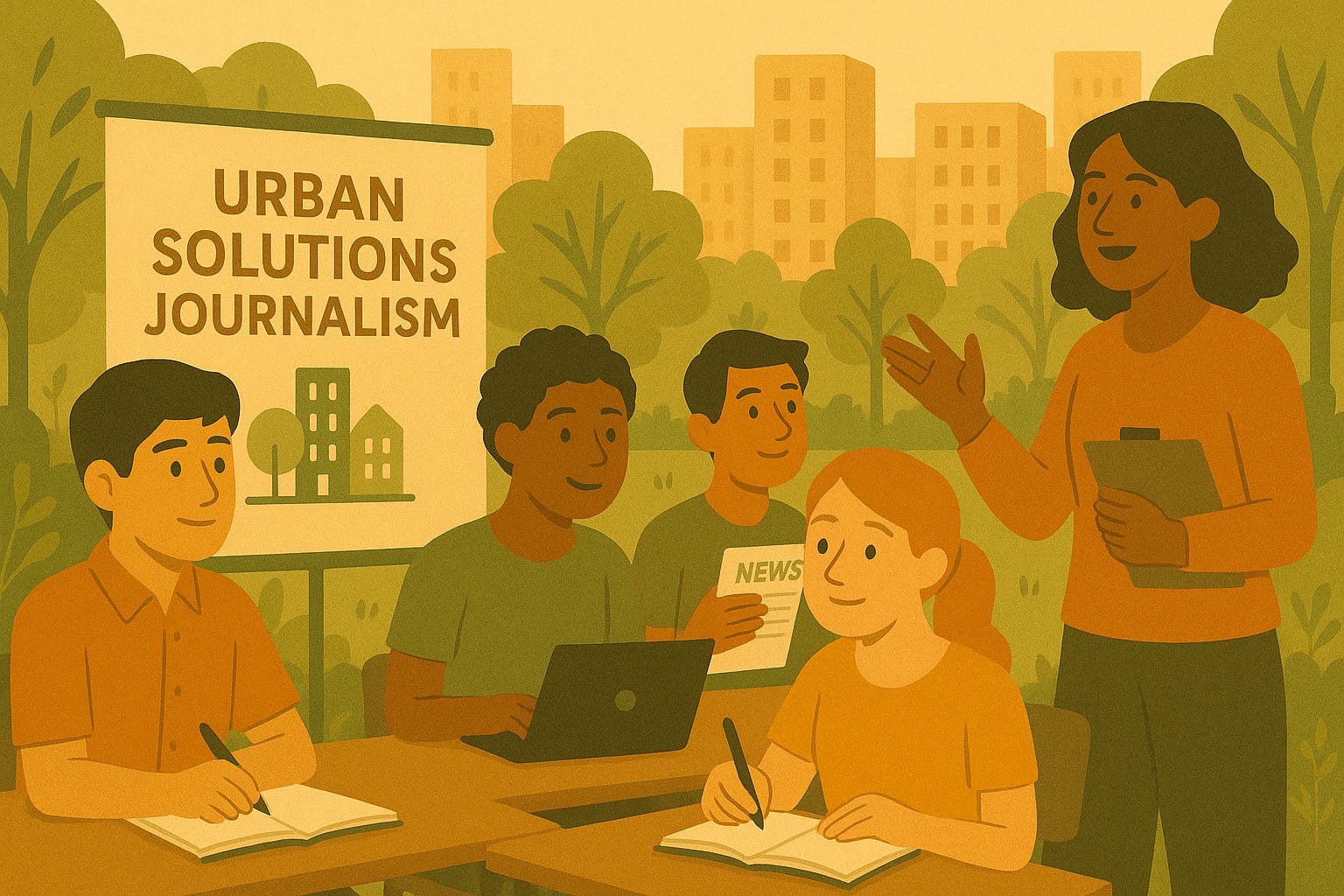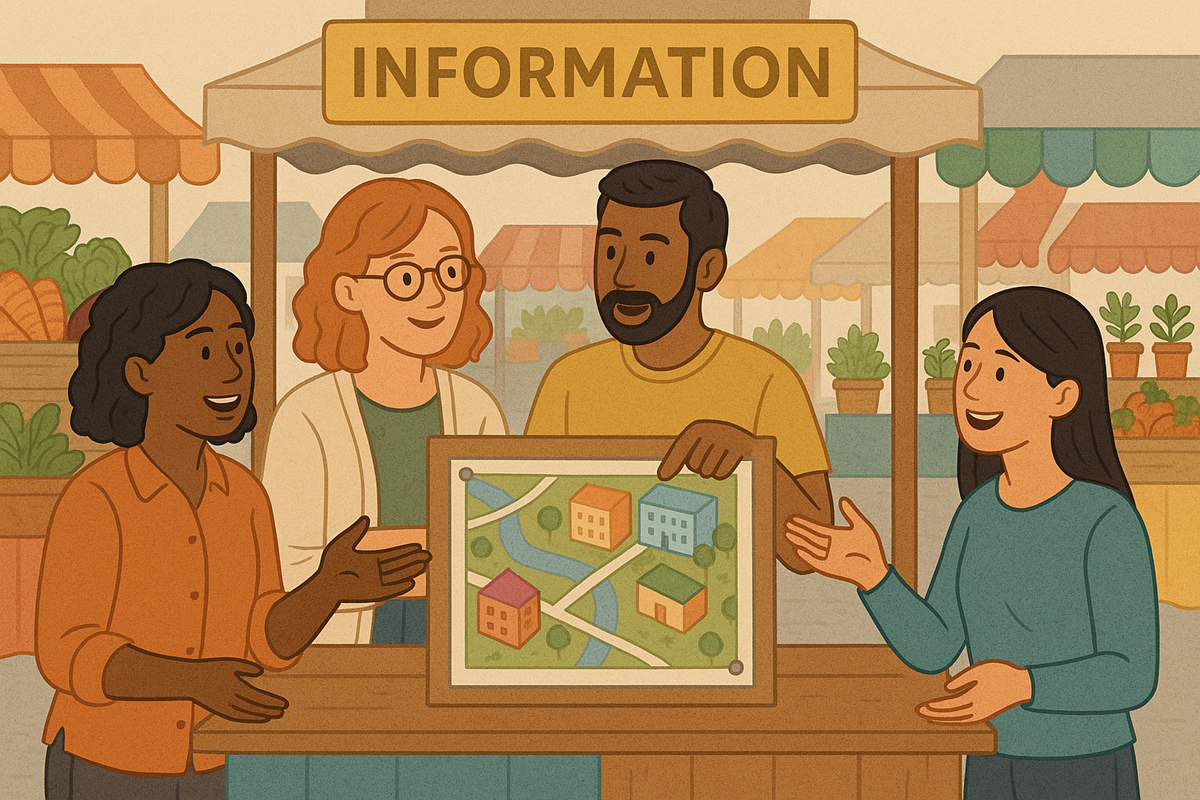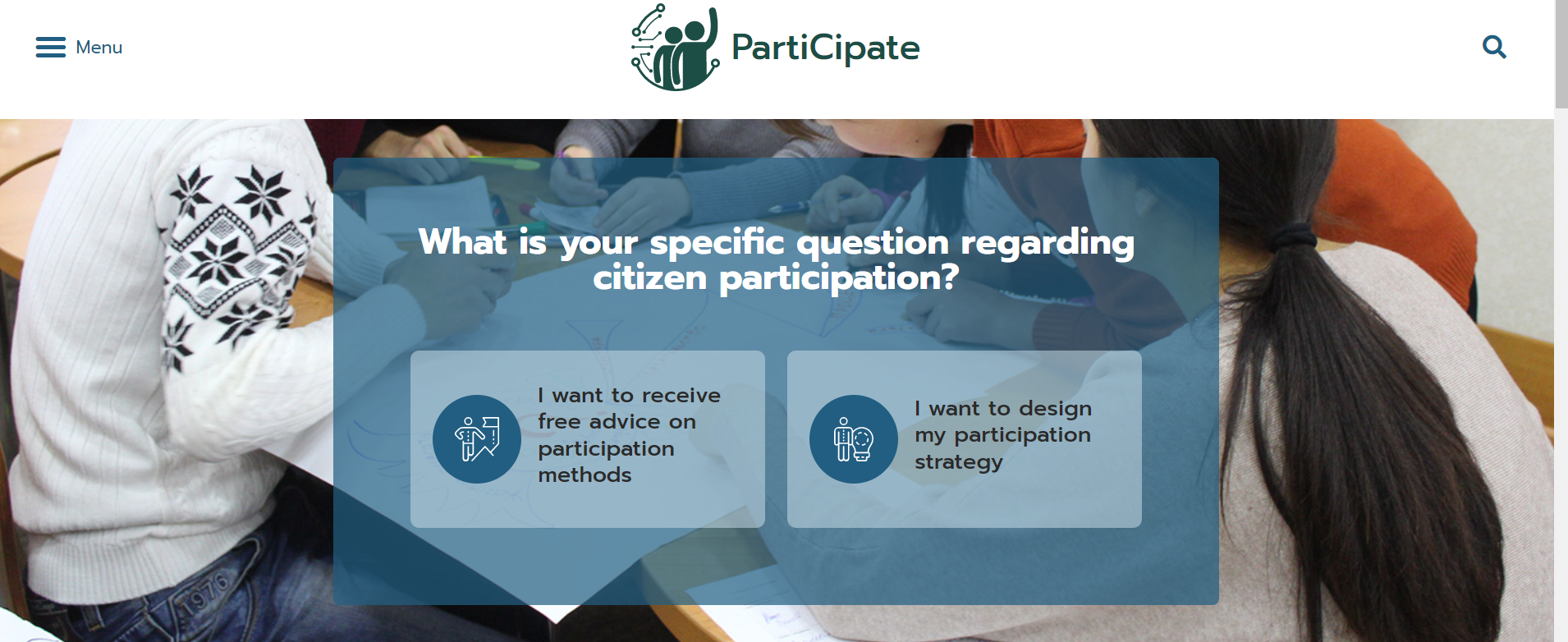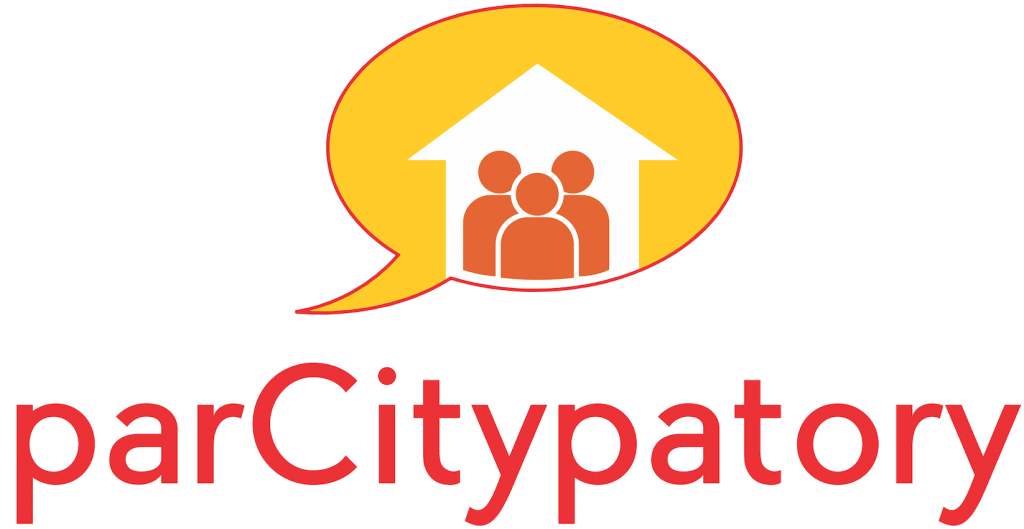A few weeks ago, I was invited to the young start-up Civocracy in Berlin to give some feedback and discuss their model of participation. I interviewed one of the team members, Heloise (see below).
To use their own words, “Civocracy is an online platform that facilitates and sparks collaborative discussion, decision-making, and engagement in communities. Aiming to incorporate citizens into the social and political decisions and initiatives around them, Civocracy brings together different stakeholders, business, government, organizations and citizens and bridges the divide between them to collectively solve problems. Civocracy has responded to the challenges of modern governance by creating an online platform where governments can raise issues for their citizens to debate and provide feedback.”
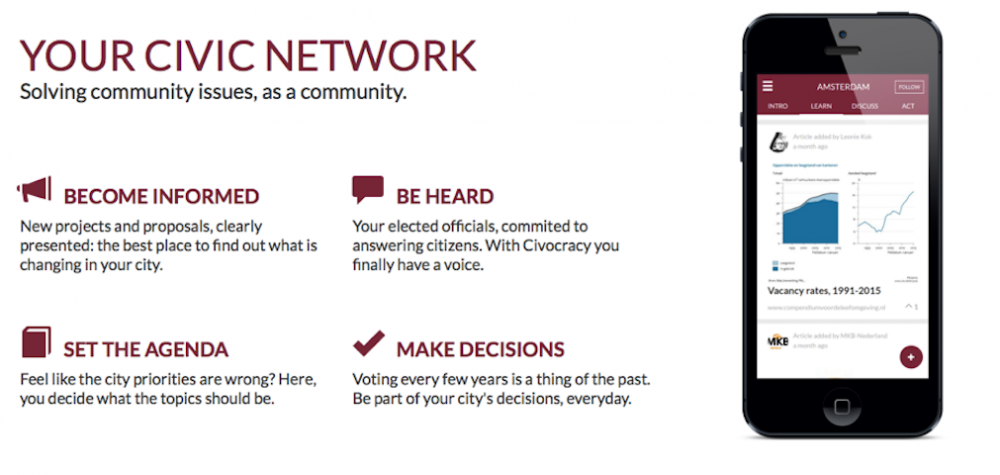
Everyone can sign up for this platform – it is free for citizens and charges local government bodies or organisations in order to fuel the platform. Civocracy started out in a handful of cities in Germany, The Netherlands, and France. By now, six cities are part of the platform as well as an organisation willing to better engage its community: the Urban Planners Association in France.
The way it works is that not only the organisation/local government can raise discussions but also anybody can make a suggestion. As soon as 49 other citizens vote for the same idea or suggestion, for example “We want better air quality in our city” or “On this public square, we want more benches”, a discussion thread is opened to the general public. Users can vote on and discuss propositions, create new ones, share links, events, and petitions and have a look at what is happening in other cities. The platform is open to all parties, citizens and organisations. Depending on which city you are in, Civocracy is available in the local language.
Like this, local governments and businesses have another “channel” to listen to citizens’ concerns and react to them as transparently as possible. Civocracy is about fostering civic engagement, participation, a sense of community, collaboration, and transparency. It aims at “revolutionising the way local communities interact.”
The website was relaunched 2 months ago and there is an app planned for later this year. Civocracy is sponsored by the Dutch IT company Centric.

Interview
This interview has been edited for length and clarity.
Which issues are most popular on Civocracy?
Most discussions are about urban planning. This has always been closely connected to citizen participation and the digital offer hasn’t changed anything about that. Another interest in Berlin is energy, that is the use of renewables. Thirdly, I would say that “comfort” issues are very popular. However, the topics are different depending on the country and even the city. In the Netherlands, we observe more discussions on more global issues like biodiversity or the use of vacant buildings.
How do you include all parts of society?
We work on improving participation culture. We believe that the internet is essentially barrier-free, but of course there will always be a bias in our users. We don’t collect big data, but our average user is probably aged 30-50, already settled somewhere and willing to improve the place they live in. We try to reach out to all age groups, but it is hard to reach some categories: we should also beware of the danger of patronizing: maybe not everybody wants to be included! We don’t see participation on Civocracy as a better plan for direct democracy. We rather view our platform as a way of pooling the interested around one topic together, to exchange different views. But we don’t aim at reaching everyone for every topic: we want to activate specific communities on specific topics.
How do you make sure that the proposals are being implemented?
We have half-day trainings for officials and government members. The trainings are free and give them many ideas on how to work with the results from the discussion on Civocracy. We have follow-up sessions and post regular updates even when discussion threads are closed. Also, it is in the interest of the organisations who opened the discussions to either justify why something is not implemented (not everything can!) and to implement the best ideas when they can be. That tremendously fosters transparency.
We are not a white label platform. That means, we are not creating different tools for the different local governments we work for: we want them to be all on the same platform, we the same features. This way, we try to ensure transparency, neutrality, and best practices exchange between our partners, in how to engage their community.
How do you prevent misuse?
We have moderators for every discussion who monitor the content and act if necessary, e.g. if there is a troll. But we don’t really have problems with misuse for now. Maybe the disposition of the platform, presented as a real local network, prevents the malevolence of the users? We believe in discussion and transparency. Even lobby organizations are allowed to join discussions, provided they disclose who they are. Since we charge municipalities for our service, they have an interest in doing something good with the tax money and are part of the platform to really listen to their citizens and change for the better.
How do you market Civocracy?
We rely on word of mouth, mainly. The news is quickly spreading within the start-up scene, since we were part of a Start-up Bootcamp, one of the best accelerators in Europe. We also emphasize the work hand in hand with our partners: we help local governments and organisations to spread the word through different media to their community. One other aspect is the stakeholders that we invite for each discussion on the platform. They play a role as to convey the information to their respective communities. So far, this works very well.
Is Civocracy a smart city technology?
I would say it is rather a Civic Tech instrument. Civic tech is now a real “trend” more widespread in countries like France and it is about supporting the ideas of citizens with technology-based instruments. We are not sure how far along the idea of e-participation is – are citizens ready yet? You have to be careful, since their first experiences with e-participation should be positive in order not to frustrate them, which would result in no more participation at all. We don’t disagree with the term smart city though, as for each smart city it is now agreed upon that you need the implication of citizens, “smart citizens”.
Do you have any plans to expand Civocracy beyond Europe?
Not yet, but there are many international prospective customers. Plus, it is important that Civocracy should be in the language of each local government we are working with, and it is not our first priority: we first want to focus on good engagement with our already existing partners!
What is your vision / long term goal?
It should be a habit to participate in political and overall local decisions. Similar to you having the routine of brushing your teeth in the morning, one of your routine actions could be to check on your phone for updates and votes. Civocracy is about transparency, even when city governments don’t manage to implement the suggested solutions. In that case, citizens will get at least an explanation and this will help to prevent “political disenchantment” or “deactivation”.
A big thank you to Heloise for giving me these insights!
Now I would like to encourage you to be part of this innovative platform! It is free and easy and available for many different European cities. Visit www.civocracy.org.
